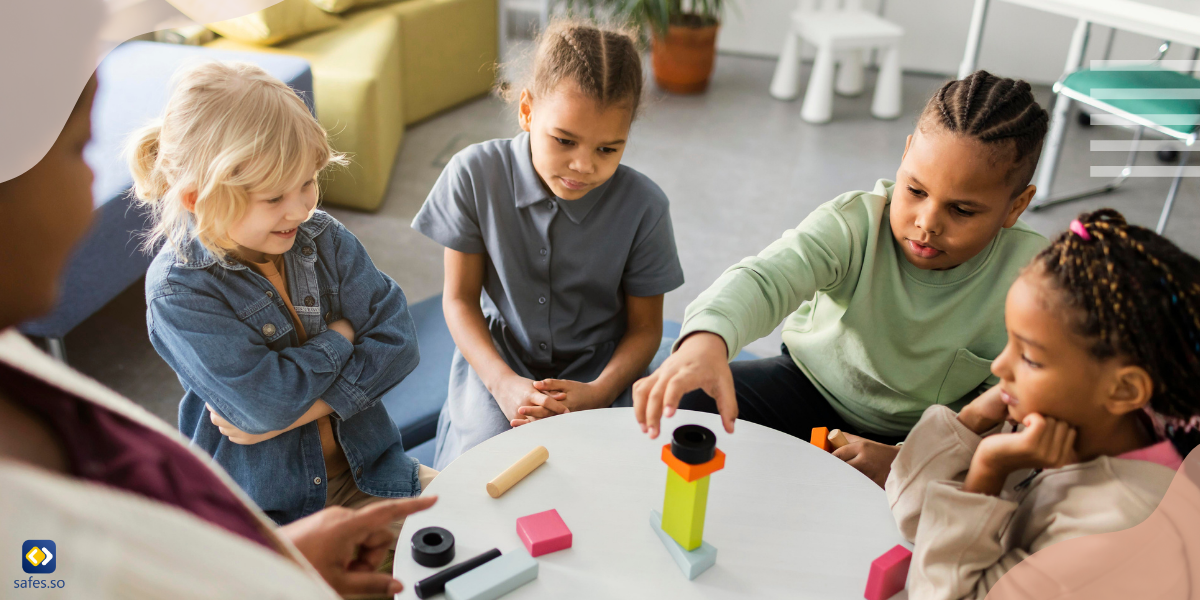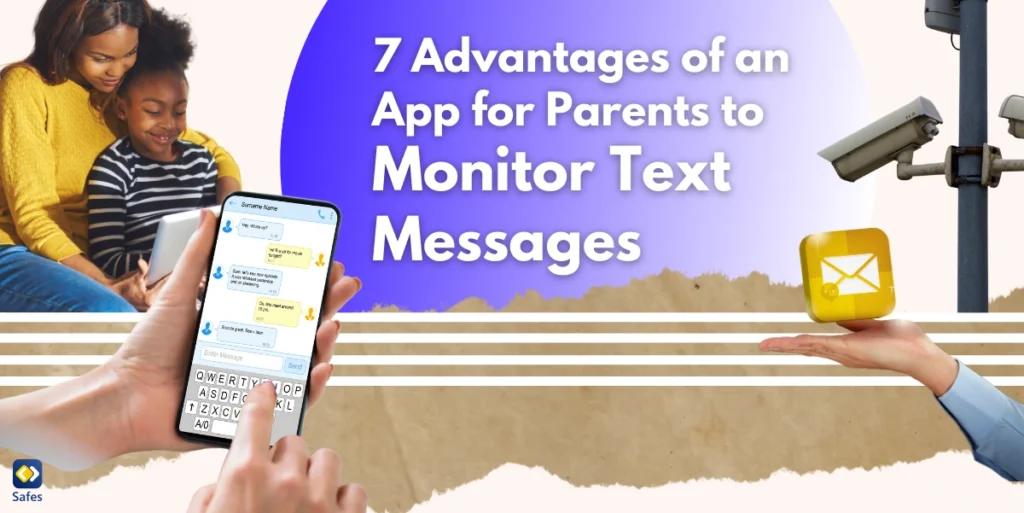As parents, we want our children to become confident, social, and happy individuals. One of the key skills that can help children achieve these qualities is social skills. Social skills help children interact with others, make friends, and communicate better. As preschoolers, children are in a crucial stage of development, and this is where parents can help shape their social skills. In this blog post, we will discuss tips for parents to teach social skills for preschoolers. We will cover various strategies that parents can use to help their kids develop essential social skills, such as communication, sharing, empathy, and more.
Download and Start Your Free Trial of the Safes Parental Control App
What Are Social Skills?
Social skills are the ability to communicate, collaborate, and interact with others effectively. For children, social skills are essential for developing healthy relationships, making friends, and succeeding in school and other social settings. There are several types of social skills that children need to learn, including communication, empathy, cooperation, and self-control.
Communication skills include the ability to express oneself clearly, listen actively, and understand others. Empathy involves understanding and responding to the feelings of others. Cooperation skills refer to the ability to work with others towards a common goal, and self-control refers to the ability to manage one’s emotions and behavior. This is just a brief list of social skills, but there are many more that parents can help their preschoolers develop.

Why Social Skills Training Is Important
Social skills training for toddlers and kindergarten-aged children can have numerous benefits, including improved communication, better relationships with peers, and increased self-confidence. Bodies of research have shown that children who receive social skills training are more likely to have positive social interactions, better academic outcomes, and fewer behavioral problems. According to a study published in the Journal of Applied Developmental Psychology, children who received social skills training during their preschool years demonstrated better social skills and emotional regulation than those who did not receive such training. Another study published in the Journal of School Psychology found that kindergarten social skills were a significant predictor of future academic and social success. These studies show the importance of social skills training for young children and highlight the long-term benefits it can have on their development.
Strategies for Teaching Social Skills to Kids
There are several concrete strategies that teachers and parents can use to teach social skills to children. Role-playing, campfire stories, and modeling are effective ways to help children understand appropriate social behaviors and responses. Collaborative games and communication exercises can also be used to teach children how to work with others and express themselves effectively.
To reinforce and practice social skills outside of formal lessons, parents and teachers can provide opportunities for children to engage in social development activities. For example, playing games that involve turn-taking, sharing, and cooperation can help children develop social skills. Encouraging children to engage in imaginative play with others can also help them practice social interactions and communication. Additionally, giving children responsibilities and opportunities to work together on projects can help them develop teamwork and collaboration skills.
In summary, there are many ways to develop social skills in young children, including through formal lessons and social development activities. By using strategies like role-playing, modeling, and games, parents and teachers can help children build the social skills they need to succeed in school and in life.

Challenges and Solutions
When teaching social skills to preschoolers, teachers and parents may encounter several challenges, such as resistance, lack of resources, and difficulty working with diversity. Children may resist participating in social skills activities or may struggle to apply what they’ve learned in real-life situations.
To address these challenges, it’s important to start small and gradually build up to more complex social skills. Creating a supportive environment where children feel safe to practice and make mistakes can also be helpful. Working with diversity by acknowledging and celebrating differences can also help children develop empathy and understanding for others.
Additionally, seeking expertise from professionals in early childhood education or child psychology can provide valuable insights and strategies for teaching social skills. Parents and teachers can also collaborate and share resources to create a more comprehensive approach to social skills development.
In summary, while teaching social skills to preschoolers can present challenges, there are practical solutions and workarounds that can help. By starting small, creating a supportive environment, working with diversity, and seeking expertise, teachers and parents can help children develop the social skills they need to succeed.
The Benefit of Using Safes to Teach Social Skills to Preschoolers
The Safes parental control app can help parents teach social skills to preschoolers. Parental control apps are useful tools for parents to manage their children’s screen time and internet access, which can indirectly impact social skills development. Parents can encourage their preschoolers to engage in other activities that promote social and emotional development by setting screen time limits and filtering internet content. These activities include imaginative play, outdoor exploration, and social interactions with peers and family. Additionally, by supervising their children’s activities during screen time, parents can observe and guide their children’s behaviors and interactions. This provides opportunities for teaching and reinforcing social skills.
Safes is available on all Android and iOS devices. To learn how to use Safes to help your child develop social skills, follow the links below:
- Windows parental controls
- Macbook parental controls
- Parental controls on Android
- iPhone parental controls
Start safeguarding your child’s digital experience today with Safes free trial and discover the peace of mind it brings.
Social Skills for Preschoolers: Conclusion
In conclusion, teaching social skills to preschoolers is an important aspect of their overall development. While it can present challenges such as resistance and lack of resources, there are practical solutions and workarounds that can help. By using strategies such as role-playing, campfire stories, modeling, and collaborative games, parents and teachers can help children develop the social skills they need to succeed. Reinforcing and practicing social skills outside of formal lessons is also crucial and can be achieved through social development activities such as playing games and engaging in imaginative play with others. Creating a supportive environment, working with diversity, and seeking expertise can also be helpful in promoting social skills for preschoolers. We can help children build the foundation for positive social interactions and relationships by prioritizing social skills development.
Your Child’s Online Safety Starts Here
Every parent today needs a solution to manage screen time and keep their child safe online.
Without the right tools, digital risks and excessive screen time can impact children's well-being. Safes helps parents set healthy boundaries, monitor activity, and protect kids from online dangers—all with an easy-to-use app.
Take control of your child’s digital world. Learn more about Safes or download the app to start your free trial today!


![Die Beziehung zwischen Social Media und Aufmerksamkeitsspanne] [Kind mit kurzer Aufmerksamkeitsspanne](https://www.safes.so/wp-content/uploads/2023/08/The-Relationship-Between-Social-Media-and-Attention-Span-1024x512.webp)
